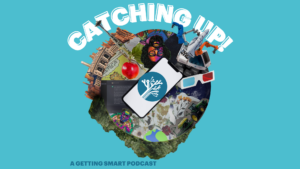Posts by Marie Bjerede
Project Based Learning is a Spectrum
The difference between “doing projects” (what the BIE refers to as “dessert projects”) and implementing project based learning is not binary - it’s a spectrum. Here, we explore the grey are in between.
What Counts as Student Agency?
Students who are motivated to learn are more likely to focus on understanding, are more likely to learn deeply, are more likely to go above and beyond in an assignment, and are more likely to investigate when they have a question.
Agency and High Quality PBL
In addition to supporting deep learning and the 4 C’s, the 6 criteria of High Quality PBL hold the ability to support another critical outcome: Student Agency, the tendency and ability for students, of their own volition, to improve or extend their own learning.
The Willpower Gap – Misinterpreting Student Agency
When definitions of agency lead to work that is driven purely by willpower, those definitions need to be reconsidered. The agentic classroom should be hard but fun for teachers and students alike.
The Problem With Responsible Students
Students with agency, on the other hand, are not responsible in the sense that they have embraced the agenda of the adults and comply with it, rather they are reliable and cooperative in pursuing their learning.
What is Agentic Learning and Why is it Important?
Fostering student agency may seem like a daunting task. Fortunately, there are many pedagogical approaches that, when implemented well, lead to engagement and intrinsic motivation, providing opportunities for students to develop agency.
Accelerating Disruption in Schools
By: Marie Bjerede and Michael Gielniak, Ph.D. Today’s schools continue to be asked to prepare students for jobs, but the jobs have changed. It's time to accelerate the kind of disruption in schools that will change status quo and help students prepare for the future.
Five Steps to Transforming a District
Transforming a district is simple. Simple in the way that a New Year’s resolution is simple - we know what to do and what is necessary, but successful long-term results depend on real change, including a change in mindset. Simple, yet difficult.
Four Steps to Transforming a School
Four higher level practices that have the potential of transforming a school including data-informed instruction, student-centered pedagogy and approaches, continual improvement and innovation process, and caring adults.
Embedded Formative Assessment: Tests without Stress
With formative assessment, the purpose is to use the generated data in making instructional decisions either on a group or an individual basis. Teachers can support students with formative embedded assessment already - with or without technology.












